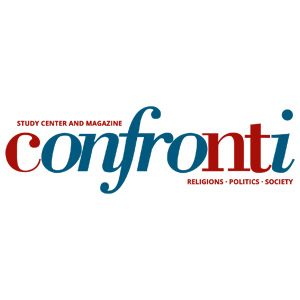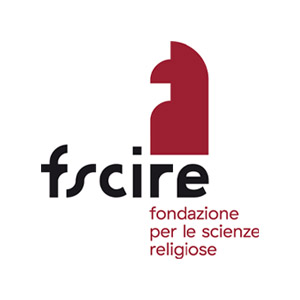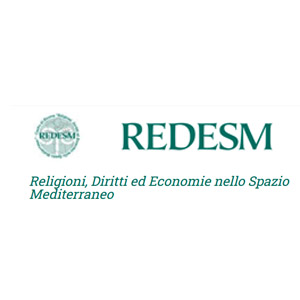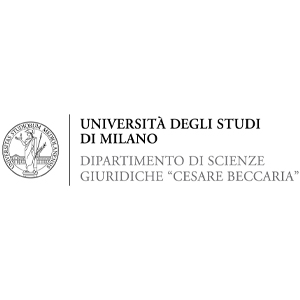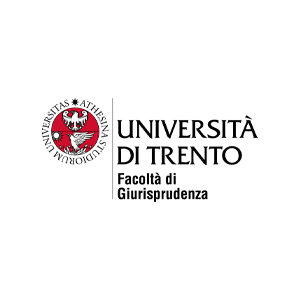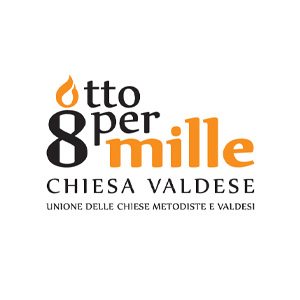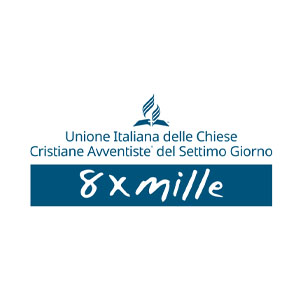Parents’ right to educate children
Universal Declaration of Human Rights
Art. 26(3): “Parents have a prior right to choose the kind of education that shall be given to their children”.
https://www.ohchr.org
International Covenant on Civil and Political Rights
Art. 18(4): “The States Parties to the present Covenant undertake to have respect for the liberty of parents and, when applicable, legal guardians to ensure the religious and moral education of their children in conformity with their own convictions”.
https://www.ohchr.org
International Covenant on Economic, Social and Cultural Rights
Art. 13(3): “The States Parties to the present Covenant undertake to have respect for the liberty of parents and, when applicable, legal guardians to [...] ensure the religious and moral education of their children in conformity with their own convictions”.
https://www.ohchr.org
Convention on the Rights of the Child
Art. 14(2): “States Parties shall respect the rights and duties of the parents and, when applicable, legal guardians, to provide direction to the child in the exercise of his or her right in a manner consistent with the evolving capacities of the child [...]”.
Art. 29(1): “States Parties agree that the education of the child shall be directed to: […] c) The development of respect for the child's parents, his or her own cultural identity, language and values, for the national values of the country in which the child is living, the country from which he or she may originate, and for civilizations different from his or her own”.
https://www.ohchr.org
Declaration of the General Assembly on the Elimination of All Forms of Intolerance and of Discrimination Based on Religion or Belief
Art. 5(1-2, 4): “The parents or, as the case may be, the legal guardians of the child have the right to organize the life within the family in accordance with their religion or belief and bearing in mind the moral education in which they believe the child should be brought up.
Every child shall enjoy the right to have access to education in the matter of religion or belief in accordance with the wishes of his parents or, as the case may be, legal guardians, and shall not be compelled to receive teaching on religion or belief against the wishes of his parents or legal guardians, the best interests of the child being the guiding principle.
In the case of a child who is not under the care either of his parents or of legal guardians, due account shall be taken of their expressed wishes or of any other proof of their wishes in the matter of religion or belief, the best interests of the child being the guiding principle”.
https://www.ohchr.org
General Conference of the United Nations Educational, Scientific and Cultural Organization
Art. 5(1): “The States Parties to this Convention agree that: […] b) It is essential to respect the liberty of parents and, where applicable, of legal guardians, firstly to choose for their children institutions other than those maintained by the public authorities but conforming to such minimum educational standards as may be laid down or approved by the competent authorities and, secondly, to ensure in a manner consistent with the procedures followed in the State for the application of its legislation, the religious and moral education of the children in conformity with their own convictions; […]”.
https://www.ohchr.org
African Charter on the Rights and Welfare of the Child
Art. 9(2-3): “Parents, and where applicable, legal guardians shall have a duty to provide guidance and direction in the exercise of these rights having regard to the evolving capacities, and best interests of the child.
States Parties shall respect the duty of parents and where applicable, legal guardians to provide guidance and direction in the enjoyment of these rights subject to the national laws and policies.”.
Art. 11(4): “States Parties to the present Charter shall respect the rights and duties of parents, and where applicable, of legal guardians to choose for their children schools, other than those established by public authorities, which conform to such minimum standards as approved by the state, to ensure the religious and moral education of the child in a manner consistent with the evolving capacities of the child”.
https://www.achpr.org
Arab Charter on Human Rights
Art. 30(3): “Parents or guardians have the freedom to provide for the religious and moral education of their children”.
http://hrlibrary.umn.edu
European Convention on Human Rights
Art. 2 of Protocol No. 1: “[…]. In the exercise of any functions which it assumes in relation to education and to teaching, the State shall respect the right of parents to ensure such education and teaching in conformity with their own religious and philosophical convictions”.
https://www.echr.coe.int
European Court of Human Rights
Kjeldsen, Busk Madsen and Pedersen v. Denmark, application nos. 5095/71, 5920/72 and 5926/72, 7 December 1976
No. 51: “The Government pleaded in the alternative that the second sentence of Article 2 (P1-2), assuming that it governed even the State schools where attendance is not obligatory, implies solely the right for parents to have their children exempted from classes offering “religious instruction of a denominational character”. The Court does not share this view. Article 2 (P1-2), which applies to each of the State’s functions in relation to education and to teaching, does not permit a distinction to be drawn between religious instruction and other subjects. It enjoins the State to respect parents’ convictions, be they religious or philosophical, throughout the entire State education programme”.
https://hudoc.echr.coe.int
RE in public schools
UN Human Rights Committee. CCPR General comment No. 22
No. 6: “The Committee is of the view that article 18.4 permits public school instruction in subjects such as the general history of religions and ethics if it is given in a neutral and objective way. The liberty of parents or legal guardians to ensure that their children receive a religious and moral education in conformity with their own convictions, set forth in article 18.4, is related to the guarantees of the freedom to teach a religion or belief stated in article 18.1. The Committee notes that public education that includes instruction in a particular religion or belief is inconsistent with article 18.4 unless provision is made for non-discriminatory exemptions or alternatives that would accommodate the wishes of parents and guardians”.
http://hrlibrary.umn.edu
ODIHR Advisory Council on Freedom of Religion or Belief. Toledo Guiding Principles on Teaching About Religions and Beliefs in Public Schools
“Recommendation no. 4: Assess the process that leads to the development of curricula on teaching about religions and beliefs to make sure that this process is sensitive to the needs of various religious and belief communities and that all relevant stakeholders have an opportunity to have their voices heard” (p. 15)
“In the process of involving stakeholders, it is vital to strike an appropriate balance. A fundamental consideration is that teaching about religion should be based on sound scholarship, and not merely on what religious communities want said about themselves and others. Furthermore, while it is important to ensure that representatives of religious communities are allowed to give input and advice, this should not be taken to the extreme of giving them too much decision-making power at the cost of abdicating state responsibility. The European Court of Human Rights has made it clear that excessive involvement of religious authorities from one community in decisions that affect the rights of those belonging to another community may itself amount to a violation of the right to freedom of religion or belief. On the other hand, courts have recognized that mere involvement of religious representatives in bodies formulating public educational policies does not constitute excessive entanglement of religious authorities in public decision making” (pp. 64-65)
https://www.osce.org
Committee on the Rights of the Child. General comment No. 20 (2016) on the implementation of the rights of the child during adolescence
No. 43: “[…]. Freedom of religion should be respected in schools and other institutions, including with regard to choice over attendance in religious instruction classes, and discrimination on the grounds of religious beliefs should be prohibited”
https://digitallibrary.un.org
General Conference of the United Nations Educational, Scientific and Cultural Organization, 14 December 1960
Art. 5(1): “The States Parties to this Convention agree that: […] b) […] no person or group of persons should be compelled to receive religious instruction inconsistent with his or their conviction; […]”.
https://www.ohchr.org
Parliamentary Assembly of the Council of Europe. Recommendation 1720 (2005) on Education and religion
“1. The Parliamentary Assembly forcefully reaffirms that each person’s religion, including the option of having no religion, is a strictly personal matter. However, this is not inconsistent with the view that a good general knowledge of religions and the resulting sense of tolerance are essential to the exercise of democratic citizenship. […].
7. School is a major component of education, of forming a critical spirit in future citizens and therefore of intercultural dialogue. It lays the foundations for tolerant behaviour, founded on respect for the dignity of each human being. By teaching children the history and philosophy of the main religions with restraint and objectivity and with respect for the values of the European Convention on Human Rights, it will effectively combat fanaticism. Understanding the history of political conflicts in the name of religion is essential. […]”.
https://assembly.coe.int
European Court of Human Rights
Kjeldsen, Busk Madsen and Pedersen v. Denmark, application nos. 5095/71, 5920/72 and 5926/72, 7 December 1976
No. 53: “[…] the second sentence of Article 2 of the Protocol (P1-2) does not prevent States from imparting through teaching or education information or knowledge of a directly or indirectly religious or philosophical kind. It does not even permit parents to object to the integration of such teaching or education in the school curriculum, for otherwise all institutionalised teaching would run the risk of proving impracticable. In fact, it seems very difficult for many subjects taught at school not to have, to a greater or lesser extent, some philosophical complexion or implications. The same is true of religious affinities if one remembers the existence of religions forming a very broad dogmatic and moral entity which has or may have answers to every question of a philosophical, cosmological or moral nature. The second sentence of Article 2 (P1-2) implies on the other hand that the State, in fulfilling the functions assumed by it in regard to education and teaching, must take care that information or knowledge included in the curriculum is conveyed in an objective, critical and pluralistic manner. The State is forbidden to pursue an aim of indoctrination that might be considered as not respecting parents’ religious and philosophical convictions. That is the limit that must not be exceeded. Such an interpretation is consistent at one and the same time with the first sentence of Article 2 of the Protocol (P1-2), with Articles 8 to 10 (art. 8, art. 9, art. 10) of the Convention and with the general spirit of the Convention itself, an instrument designed to maintain and promote the ideals and values of a democratic society”.
https://hudoc.echr.coe.int
W. and D.M., M. and H.I. v. the United Kingdom [dec.], application nos. 10228/82 and 10229/82, 6 March 1984
“[…]. Thus the essence of Art. 2 of Protocol N° I is the safeguarding of pluralism and tolerance in public education and the prohibition on indoctrination, parents’ religious and philosophical convictions having to be respected, albeit not necessarily reflected, in the State school system”.
https://hudoc.echr.coe.int
Bartosz Saniewski v. Poland [dec.], application no. 40319/98, 26 June 2001
No. 1: “[…] there was no interference with the rights safeguarded by Article 9 of the Convention where voluntary religious education had been organised in State schools, or exemptions were possible from compulsory religious education, or when marks for attendance at such courses or alternative ethics courses were foreseen in school reports”.
https://hudoc.echr.coe.int
Folgerø and Others v. Norway [Grand Chamber], application no. 15472/02, 29 June 2007
No. 78: “The Convention safeguarded against indoctrination, not against acquiring knowledge […]”.
No. 89: “[…] the second sentence of Article 2 of Protocol No. 1 does not embody any right for parents that their child be kept ignorant about religion and philosophy in their education. […]”.
https://hudoc.echr.coe.int
Appel-Irrgang and Others v. Germany [dec.], application no. 45216/07, 6 October 2009
“[…]. As to the applicants’ submission that the ethics classes contained ideas or conceptions critical of or opposed to Christian beliefs, the Court considers that it is not possible to deduce from the Convention a right not to be exposed to convictions contrary to one’s own. […]”.
https://hudoc.echr.coe.int
Grzelak v. Poland, application no. 7710/02, 15 June 2010
No. 104: “[…]. The Court notes that it remains, in principle, within the national margin of appreciation left to the States under Article 2 of Protocol No. 1 to decide whether to provide religious instruction in public schools and, if so, what particular system of instruction should be adopted. The only limit which must not be exceeded in this area is the prohibition of indoctrination. […]”.
https://hudoc.echr.coe.int
Hasan and Eylem Zengin v. Turkey, application no. 1448/04, 9 October 2007
Nos. 71-76: “[…]. Where a Contracting State includes religious instruction in the curriculum for study, it is then necessary, in so far as possible, to avoid a situation where pupils face a conflict between the religious education give by the school and the religious or philosophical convictions of their parents. In this connection, the Court notes that, with regard to religious instruction in Europe and in spite of the variety of teaching approaches, almost all of the member States offer at least one route by which pupils can opt out of religious education classes, by providing an exemption mechanism or the option of attending a lesson in a substitute subject, or making attendance at religious studies classes entirely optional.
The Court notes that, under Article 24 of the Turkish Constitution, “religious culture and ethics” is one of the compulsory subjects. However, it appears that a possibility for exemption was introduced by the Supreme Council for Education's decision of 9 July 1990 […]. According to that decision, only children “of Turkish nationality who belong to the Christian or Jewish religion” have the option of exemption, “provided they affirm their adherence to those religions”.
The Court considers at the outset that, whatever the category of pupils concerned, the fact that parents must make a prior declaration to schools stating that they belong to the Christian or Jewish religion in order for their children to be exempted from the classes in question may also raise a problem under Article 9 of the Convention […].
In addition, the Supreme Council for Education's decision provides for the possibility of exemption to solely two categories of pupils of Turkish nationality, namely those whose parents belong to the Christian or Jewish faiths. […] the Court considers that this situation is open to criticism, in that “if this is indeed a course on the different religious cultures, there is no reason to make it compulsory for Muslim children alone. Conversely, if the course is essentially designed to teach the Muslim religion, it is a course on a specific religion and should not be compulsory, in order to preserve children's and their parents' religious freedoms” […].
The Court notes that, according to the Government, this possibility for exemption may be extended to other convictions if such a request is submitted […]. Nonetheless, whatever the scope of this exemption, the fact that parents are obliged to inform the school authorities of their religious or philosophical convictions makes this an inappropriate means of ensuring respect for their freedom of conviction. In addition, in the absence of any clear text, the school authorities always have the option of refusing such requests […].
In consequence, the Court considers that the exemption procedure is not an appropriate method and does not provide sufficient protection to those parents who could legitimately consider that the subject taught is likely to give rise in their children to a conflict of allegiance between the school and their own values. This is especially so where no possibility for an appropriate choice has been envisaged for the children of parents who have a religious or philosophical conviction other than that of Sunni Islam, where the procedure for exemption is likely to subject the latter to a heavy burden and to the necessity of disclosing their religious or philosophical convictions in order to have their children exempted from the lessons in religion.
https://hudoc.echr.coe.int
Papageorgiou and Others v. Greece, application nos. 4762/18 and 6140/18, 31 October 2019
Nos. 84-87 and 89: “In the Court’s view, what matters in respect of Article 2 of Protocol No. 1 is to ascertain whether the conditions imposed […] are likely to place an undue burden on parents and require them to disclose their religious or philosophical convictions in order to have their children exempted from the religious education course. […].
[…] the Court notes that the parents are obliged to submit to the school principal a solemn declaration in writing, countersigned by the teacher, stating that their child is not an Orthodox Christian. The school principal has the responsibility to check the documentation in support of the grounds relied on by the parents and draw their attention to the seriousness of the solemn declaration they have filed.
Checking the seriousness of the solemn declaration implies that the school principal is to verify whether it contains false information, namely whether the birth certificate of the child which indicates the parents’ religion and which must be submitted to the school authorities […] corresponds to the solemn declaration. In addition, “religion” as a subject is compulsory in primary, middle and high school, as well as in certificates of studies, under the relevant ministerial decisions […]. Where there is a discrepancy, the school principal must alert the public prosecutor that a false solemn declaration may have been submitted, since it is a criminal offence […]”.
The Court considers that the current system of exemption of children from the religious education course is capable of placing an undue burden on parents with a risk of exposure of sensitive aspects of their private life and that the potential for conflict is likely to deter them from making such a request […].
[…] the freedom to manifest one’s beliefs also contained a negative aspect, namely the individual’s right not to manifest his or her religion or religious beliefs and not to be obliged to act in such a way as to enable conclusions to be drawn as to whether he or she held – or did not hold – such beliefs. The State authorities did not have the right to intervene in the sphere of individual conscience and to ascertain individuals’ religious beliefs or oblige them to reveal their beliefs concerning spiritual matters”.
https://hudoc.echr.coe.int
Right to open and manage private schools
International Covenant on Economic, Social and Cultural Rights
Art. 13(3-4): “The States Parties to the present Covenant undertake to have respect for the liberty of parents and, when applicable, legal guardians to choose for their children schools, other than those established by the public authorities, which conform to such minimum educational standards as may be laid down or approved by the State and to ensure the religious and moral education of their children in conformity with their own convictions.
No part of this article shall be construed so as to interfere with the liberty of individuals and bodies to establish and direct educational institutions, subject always to the observance of the principles set forth in paragraph I of this article and to the requirement that the education given in such institutions shall conform to such minimum standards as may be laid down by the State”.
https://www.ohchr.org
General Conference of the United Nations Educational, Scientific and Cultural Organization
Art. 5(1): “The States Parties to this Convention agree that: […] c) It is essential to recognize the right of members of national minorities to carry on their own educational activities, including the maintenance of schools and, depending on the educational policy of each State, the use or the teaching of their own language, provided however: i. That this right is not exercised in a manner which prevents the members of these minorities from understanding the culture and language of the community as a whole and from participating in its activities, or which prejudices national sovereignty; ii. That the standard of education is not lower than the general standard laid down or approved by the competent authorities; and iii. That attendance at such schools is optional”.
https://www.ohchr.org
Convention on the Rights of the Child
Art. 29(2): “No part of the present article or article 28 shall be construed so as to interfere with the liberty of individuals and bodies to establish and direct educational institutions, subject always to the observance of the principle set forth in paragraph 1 of the present article and to the requirements that the education given in such institutions shall conform to such minimum standards as may be laid down by the State”.
https://www.ohchr.org
African Charter on the Rights and Welfare of the Child
Art. 11(7): “No part of this Article shall be construed as to interfere with the liberty of individuals and bodies to establish and direct educational institutions subject to the observance of the principles set out in Paragraph I of this Article and the requirement that the education given in such institutions shall conform to such minimum standards as may be laid down by the States”.
https://www.achpr.org
European Convention on Human Rights
Art. 2 of Protocol No. 1: “[…]. In the exercise of any functions which it assumes in relation to education and to teaching, the State shall respect the right of parents to ensure such education and teaching in conformity with their own religious and philosophical convictions”.
https://www.echr.coe.int
Public funding
Human Rights Committee
Arieh Hollis Waldman v Canada, Communication No. 694/1996; U.N. Doc. CCPR/C/67/D/694/1996, 3 November 1999
“[…] the Committee observes that the Covenant does not oblige States parties to fund schools which are established on a religious basis. However, if a State party chooses to provide public funding to religious schools, it should make this funding available without discrimination. This means that providing funding for the schools of one religious group and not for another must be based on reasonable and objective criteria".
http://www.worldcourts.com
European Court of Human Rights
Verein Gemeinsam Lernen v. Austria [dec.], application no. 23419/94, 7 February 1994
https://hudoc.echr.coe.int
Guide on Article 2 of Protocol No. 1 to the European Convention on Human Rights
No. 14: “[…]. Article 2 of Protocol No. 1 guarantees the right to open and run a private school, but the States do not have a positive obligation to subsidise a particular form of teaching […]”.
https://www.echr.coe.int




 MENU
MENU CLOSE
CLOSE
